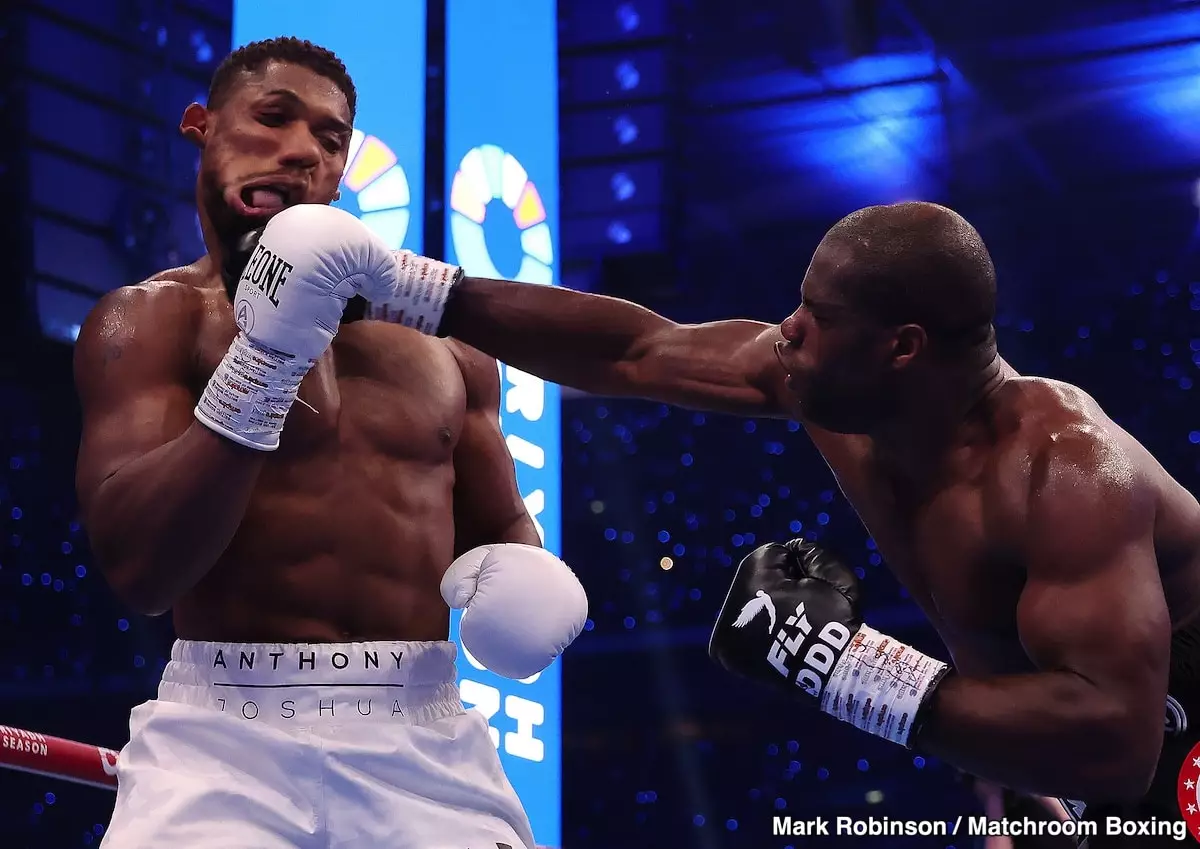In the world of heavyweight boxing, the echoes of retired greats resonate deeply within the hearts of fans and analysts alike. The recent performances of Anthony Joshua and Deontay Wilder appear to spell trouble for their storied careers, raising the question: have we witnessed the final curtains closing on two of modern boxing’s most explosive icons? Both athletes captivated audiences throughout the last decade—Wilder known for his destructive power, and Joshua for his athleticism and prowess in the ring. However, following their crushing defeats, it seems their paths diverge heavily from the championship glory they once enjoyed.
The anticipation surrounding a potential clash between Joshua and Wilder reached fever pitch around 2018 and 2019. Enthusiasts believed a blockbuster encounter was imminent, promising an electrifying showdown of talent and tenacity. However, fate had other plans; Joshua’s unexpected loss to Andy Ruiz and Wilder’s downfall at the hands of Tyson Fury dampened the prospects of this super-fight. As both fighters recently suffered severe stoppages in their latest bouts—Wilder against Zhilei Zhang and Joshua succumbing to Daniel Dubois—the marketability of their prospective match now feels tainted and wildly outdated.
These losses are more than just numbers in the records; they represent definitive moments that have altered the trajectories of their careers. Joshua’s recent knockout has raised alarms about his resilience, while Wilder’s last performance suggested a shell of the once-fearsome boxer, leading many to speculate on the longevity of their careers. The whispers of retirement are persistent, but both warriors might still have the will to step back into the ring, albeit with uncertainty surrounding their capabilities.
Retirement Talks: Navigating the Crossroads of Glory and Decline
It’s evident that both Joshua and Wilder are faced with challenges beyond the physical realm; psychological barriers and personal expectations loom large. As they contemplate retirement, the narratives surrounding their careers could not be more contrasting. Joshua, encouraged by his promoter Eddie Hearn to pursue a rematch with Dubois, still seeks redemption. Meanwhile, Wilder’s trainer, Malik Scott, has frequently reiterated that the heavyweight would not simply fade into the shadows, stating that his fight with Joshua remains a possibility—a flicker of hope in a bleak landscape.
Yet, the question arises—would pursuing this marquee attraction benefit either combatant or boxing as a whole? The sentiments surrounding their impending matchup have shifted dramatically. While it once promised unbridled excitement, today it seems a shadow of its former self; a friendly rivalry turned desperate gamble filled with risks of injury and further reputational damage.
Should Joshua and Wilder face off again, it is difficult to ascertain whether fans will rally behind the matchup with the enthusiasm it rightfully deserves. In their prime, both boxers drew impressive crowds and generated substantial pay-per-view sales. However, would the same sentiment prevail now that both are seen as compromised fighters? While some fans might be intrigued by the prospect of witnessing the collision of two former champions, others may find the notion troubling. After heavy knockouts, both boxers have displayed vulnerabilities that could lead to a rather uneventful encounter; the scenario of a ‘who lands first wins’ fight appears all too probable.
Moreover, the reality of fighter health must take precedence. Both Joshua and Wilder have amassed substantial wealth through their careers, long enough to consider leaving behind the dangers that accompany a sport defined by its brutal nature. Why would they risk permanent damage or even their legacies for a match with diminished stakes? Fans love a good spectacle, yet sacrificing long-term health for fleeting entertainment seems steep for pugilists of their caliber.
Concluding Thoughts: A Legacy Worth Preserving
As the dust settles on their respective careers, the saga of Anthony Joshua and Deontay Wilder leaves us grappling with questions of legacy, health, and ambition. The idea of a showdown that once glimmered with potential has now devolved into uncertainty, highlighting the harsh realities many fighters face as they navigate the twilight of their professions. Whether they decide to fight again, retire, or fade into obscurity, one thing remains clear: the boxing world will remember the days when these two towering figures reigned supreme. The profound decisions awaiting Joshua and Wilder compel us to consider the price of glory and the value of self-preservation. While the lure of one last fight is enticing, the narrative surrounding their legacy is perhaps deserving of a more dignified conclusion.

